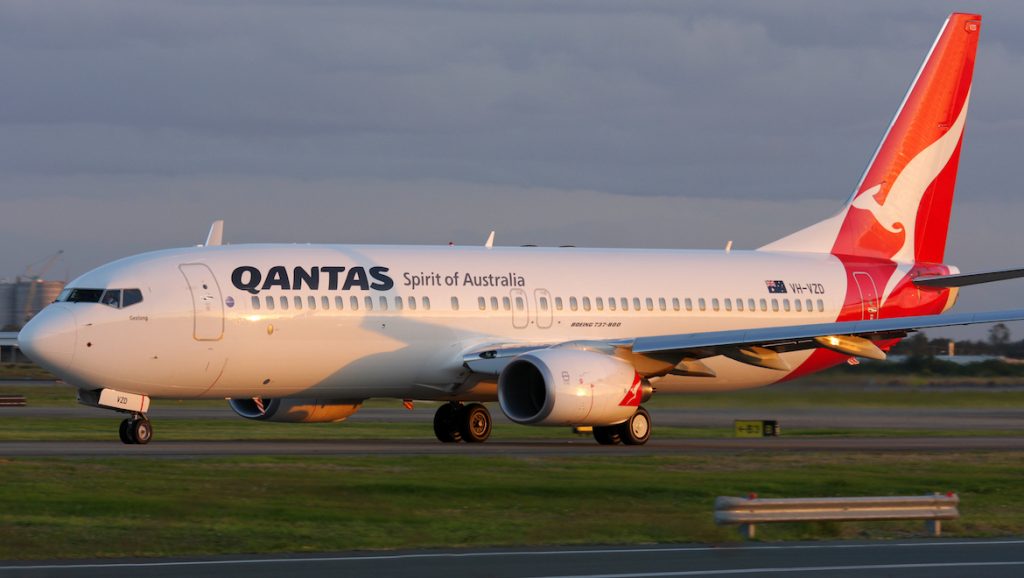
Engineers across the Qantas Group have voted overwhelmingly in favour of taking protected industrial action, including strike action, which could start as early as Monday.
Over 700 licensed aircraft engineers from Qantas, Jetstar and Network Aviation took part in the ballot, after negotiations between the union and management over pay and conditions deteriorated.
Qantas’ most recent pay offer included a two-year wage freeze, followed by a 2 per cent annual wage increase, falling far behind the current rate of inflation.
The Australian Licensed Aircraft Engineers Association said it will initially use “token” one-minute work stoppages to minimise disruption to passengers, before considering more significant action.
“We hope that might be enough to get the airlines to change their views on things,” said ALAEA federal secretary Steve Purvinas, “We do want to give some time for the resolution of these matters before we do anything that may disrupt the public.”
However, engineers from across the Group voted on, and approved, strikes of up to 12 hours at a time.
“Our target is not the passengers, it is the airline or airlines that are not negotiating in good faith,” Purvinas added.
“We want to create a financial penalty for them to have to find alternative labour that we will offer that will be more expensive than paying people their single-time rate for their normal work.”
Qantas said the union is requesting 5 per cent annual pay rises at Network Aviation, a 6 per cent wage hike at Jetstar followed by three years of 3 per cent rises, and a one-off 12 per cent increase at Qantas.
“We’re committed to pay increases for our licensed engineers, but the union’s pay claims are as high as 12 per cent for one year, or three times the wage increases already agreed to this year by thousands of our employees,” a Qantas spokesman said.
“The union has repeatedly said that any industrial action won’t impact customers’ travel plans and, while we hope they stick to their word, we’re also putting in place contingency plans in case they don’t.”
Qantas pointed out it was offering workers a $5,000 bonus as long as they accept the airline’s pay offer, as well as 1000 share rights to every staff member on top of the pay offer.
It marks a growing trend in aviation, as an industry-wide skills shortage continues to wreak havoc on passengers’ travel plans, and negotiations over pay and working conditions remain hostile.
In June, 90 per cent of Rex Saab pilots vote to take protected action against the airline, with actions including refusing to add additional fuel reserves on aircraft, ditching their uniforms, and refusing to attend shifts if less than 10 hours has passed since their last shift ended.
More recently, just last week, ground services workers from third-party provider Dnata received approval from the Fair Work Commission to vote on their own industrial action.
Dnata ground crew, some of whom are notably contracted to Qantas, have been involved in an ongoing dispute with company management over pay and conditions.
The outcome of the protected action ballot will determine whether the ground crew undertakes future industrial action, including strikes. If the ballot is successful, workers will be provided with protections under the Fair Work Act to take industrial action.
It comes as the industry continues to face disruption, with flight delays and cancellations ballooning, hours-long queues in airports, and increasing cases of lost or delayed baggage.
The push for industrial action comes following a decision by Dnata management to pursue a new enterprise agreement that the TWU say “pushes workers into below the legal award conditions” and “gives pay cuts to experienced workers.”
According to the TWU, the company has denied workers’ calls to provide increased part-time hours or take on more employees in permanent positions.
As a result, the workers that make up the ground crews are becoming “chronically over-worked” with no avenues for easing pressure being provided by Dnata management.
The condemnation of the offered enterprise agreements has been followed by a stark warning that the chaos seen at airports around Australia over recent months will continue if working conditions and employment agreements do not improve.
Without the provision of increased employment rights and the promise of job security, experienced workers will lack the incentives to return to the industry following the COVID-19 pandemic.















